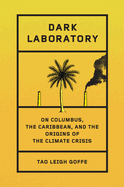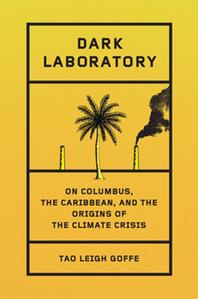
 Climate change and eco-conscious political action are at the forefront of various global conversations as it becomes harder to deny that the current status quo is not going to be sustainable for much longer. As debates rage about the most effective course of action, interdisciplinary theorist Tao Leigh Goffe passionately argues that the future cannot be solved without turning to the past. Using both personal history and an approachable distillation of academic research, Goffe presents a new understanding of the current ecological landscape as connected to the extractive colonial practices imposed upon the world at large by European nations from the Early Modern period through the Industrial Age, and beyond.
Climate change and eco-conscious political action are at the forefront of various global conversations as it becomes harder to deny that the current status quo is not going to be sustainable for much longer. As debates rage about the most effective course of action, interdisciplinary theorist Tao Leigh Goffe passionately argues that the future cannot be solved without turning to the past. Using both personal history and an approachable distillation of academic research, Goffe presents a new understanding of the current ecological landscape as connected to the extractive colonial practices imposed upon the world at large by European nations from the Early Modern period through the Industrial Age, and beyond.
Goffe writes: "we continuously fail to address the origin of the problem. Without economic and historical analyses of the origins of the climate crisis how can we expect to understand its sedimented layers?" Using Columbus's arrival in the Caribbean to mark the start of globalization in practice, she uses European colonial archives to draw connections between ideas about race, economic progress, and how plantations and extractive practices begat the current capitalist society. In doing so, Goffe asks "urgent, philosophical questions about whether we want to live differently."
At the crux of her argument, she centers this idea: "Freedom for everyone requires a confrontation with the capitalist greed upon Western society was founded." In doing so she directly calls out the restrictive ways that ignoring the colonial condition limits the collective imagination of what a world after various climate apocalypses might look like. Goffe persuasively argues that current climate movements sidestep issues of race and colonization, and therefore clearly shows how colonial and imperial powers are still having a greater impact on the wider environment without accepting responsibility for the damage. But she also points to movements for hope by centering moments and traditions of both Indigenous and Afro-Indigenous resistance, demonstrating that there are still ways to imagine a future with ecological security for all.
Perhaps most importantly Goffe uses her own heritage--which she describes as at the intersection of Black and Chinese cultures brought into contact specifically through British colonialism--to demonstrate the impacts of colonialism and how she has ties to several heritages and environments that met specifically because of those European incursions. As she traces the threads of Indigenous and Afro-Indigenous resistance tied to the mountains, the oceans, the coral reefs, to birdsong and the resonances of plants, she calls readers to rethink their relationships to environments, to rethink the idea of ownership and belonging, and so also rethink the idea of climate justice for everyone. --Michelle Anya Anjirbag, freelance reviewer
Shelf Talker: Tao Leigh Goffe presents a compelling argument for why there will be no lasting climate solutions without indigenous sovereignty and racial equity at the core of the efforts.

